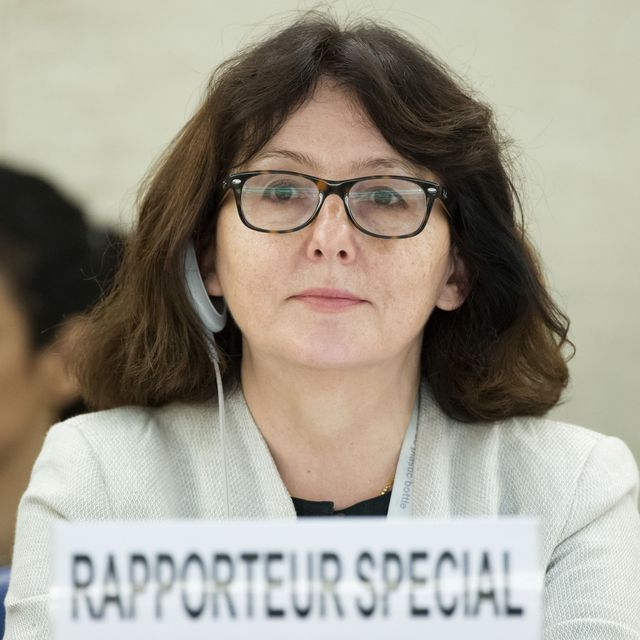Taking Online Gender-Based Violence Seriously

In 2018, the UN Special Rapporteur on violence against women released a report that discussed online violence against women and girls from a human rights perspective. This report highlights several important points regarding the issue of online gender-based violence (GBV). For example, the report states there to be a strong connection between online and offline GBV, recommending that these matters are not thought of as separate issues. It also states that the current declaration of human rights must be upheld online as well as offline. A separation between the two can lead to online GBV being taken less seriously by states, law enforcement and those in a position of power to prevent or address it. This includes Internet intermediaries such as Facebook, Twitter, Reddit, YouTube, WhatsApp, or Snapchat. There is a risk that a separation between the two allows for a disconnection from already existing values, human rights and laws.
Derailing Gender Equality Aims
In the report, the connection between online and offline GBV is highlighted in the statement that “[a]ll forms of online gender-based violence are used to control and attack women and to maintain and reinforce patriarchal norms, roles and structures and an unequal power relationship”. This sentiment is familiar, lying at the basis of all GBV, not only online. Furthermore, it is connected to the denial of human rights for women (and those who do not conform to gender norms) such as the right to privacy, the right to freedom of expression, freedom of speech and freedom of opinion. Strongly expressed opinions by women, especially regarding feminism or politics for example, are often met with distain and abuse. Although men also receive abuse when expressing their opinion, the abuse that women receive regularly targets their identity as a woman. Both the aim and the consequence of much online GBV is to humiliate, shame, stigmatise, degrade and intimidate the victim so that they are unable to participate fully in public life.
This has far-reaching consequences for the UN’s SDG 5 of gender equality as the Internet and information and communications technology (ICT), which should be instruments of empowerment for women and girls, are instead being used by many as a platform to enact gender-based discrimination and violence. As the UN report states, much online violence is not gender-neutral. For example, a staggering 90% of those victimised by the non-consensual distribution of intimate images are women. Therefore, in order to continue with the aim of achieving gender equality in the near future, states must take online GBV seriously and create policies and enact laws accordingly.
Non-Consensual Distribution of Intimate Images
An example of online or ICT-facilitated GBV is the non-consensual distribution of intimate images. This form of violence has gained much attention in recent years with some states updating existing laws or creating new Acts that deal with this increasingly prevalent issue. Considering online GBV was first addressed as far back as 2006 by the UN Secretary-General in an in-depth study on all forms of violence against women, the enactment of these laws has been slow. But with many instances in recent years of online GBV having dire consequences, states such as Canada and Germany have taken legislative action. In Canada, the suicides of two girls prompted the Bill C-13 to be introduced in 2013 and the Protecting Canadians from Online Crime Act to be enacted in 2015. This Act makes the distribution of intimate images without consent a crime punishable by up to five years imprisonment. It also allows for the authorisation of the removal of such images from the Internet. In Germany, Article 201a of the German Criminal Code: “violation of intimate privacy by taking photographs”, states it to be an offence to create, transmit, use or distribute pictures of another person protected from view without that person’s consent. This is punishable by up to one year in prison or a fine. In New Jersey, the New Jersey Code of Criminal Justice, under Section 2C:14-9 prohibits the taking of and distribution of photos or videos of nude persons or persons whose intimate parts are exposed or who are engaging in sexual conduct, unless that persons consent is given. This offence is punishable by three to five years imprisonment.
However, the non-consensual distribution of intimate images has, in too many cases, caused such a high degree of humiliation and suffering for victims that it has led to suicide. This suggests that sentences of up to one year imprisonment or a fine are disproportionate to the crime, even if the offence does not result in suicide. The impact that this type of offence has upon the victim’s life is clearly enormous and the impact that it has upon women and girls as a group fighting for equality warrants far more serious consideration. Furthermore, the existence of these laws does not necessarily mean that convictions are being made or that victims are coming forward to report the crime, as reporting a crime of this nature often begins a process of re-victimisation if the complaint is not taken seriously or dealt with sensitively. Therefore, policies need to be created that go beyond the punitive system.
Prevention is Paramount
Preventative measures in terms of education are vital in the battle against online GBV. It is also necessary to improve sensitivity training for those who enforce the law, such as magistrates, lawyers and the police. The role of Internet intermediaries must also be highlighted and come under continued scrutiny and they must accept their human rights responsibilities. As noted in the UN 2018 report, legislation intended to protect against online GBV needs to be carefully designed in accordance with the international human rights framework. And rights such as the right to privacy, freedom of expression, freedom of opinion and freedom of speech must be taken into consideration when designing legislation as they are deeply intertwined with online GBV. These rights are currently points of great contention and it is important to create policies and legislation that allows all human rights to come together rather than to work against getting justice for those who suffer online GBV.
Teri Shardlow



